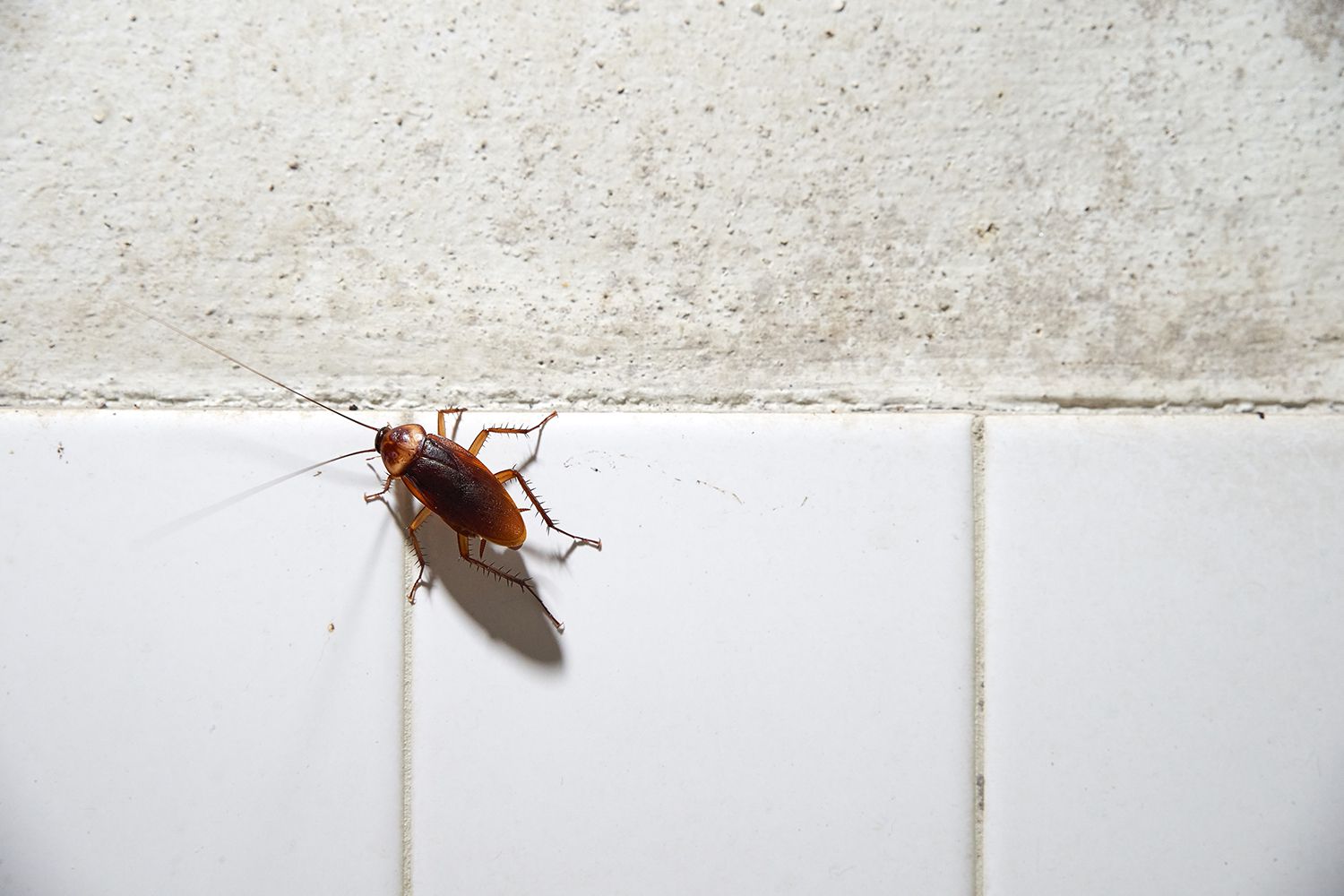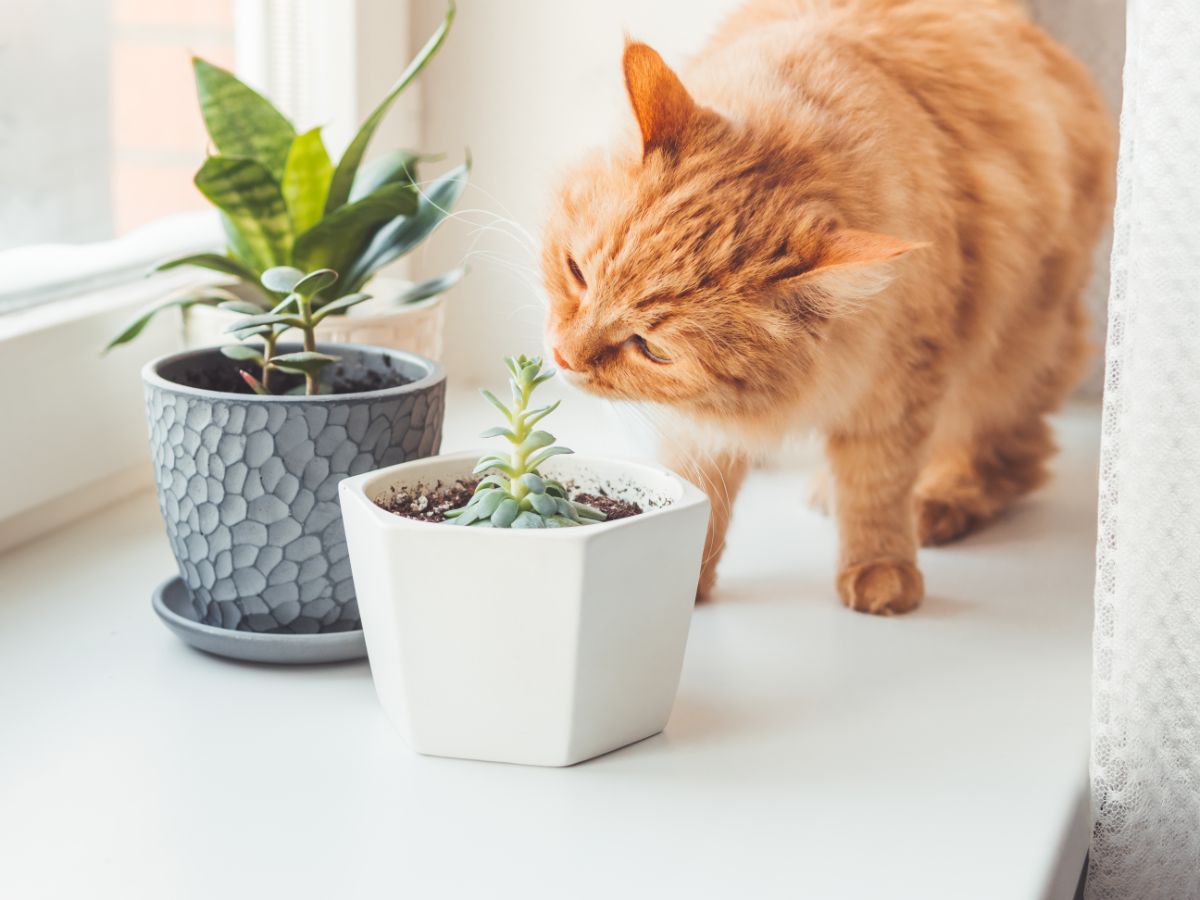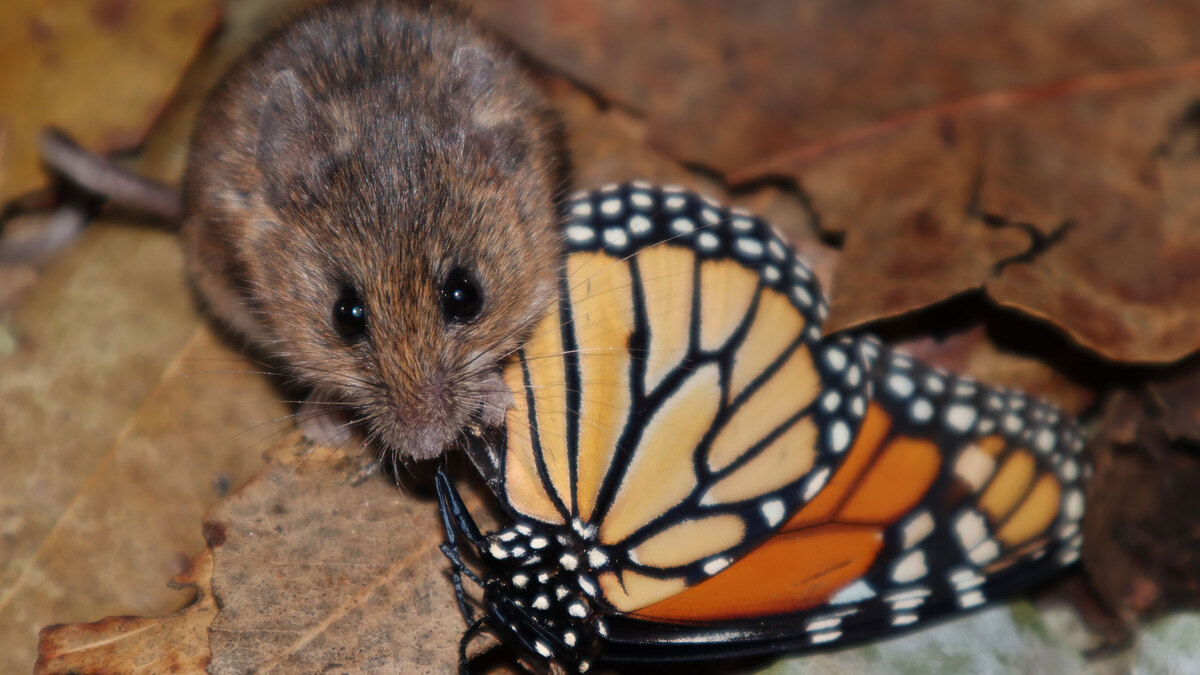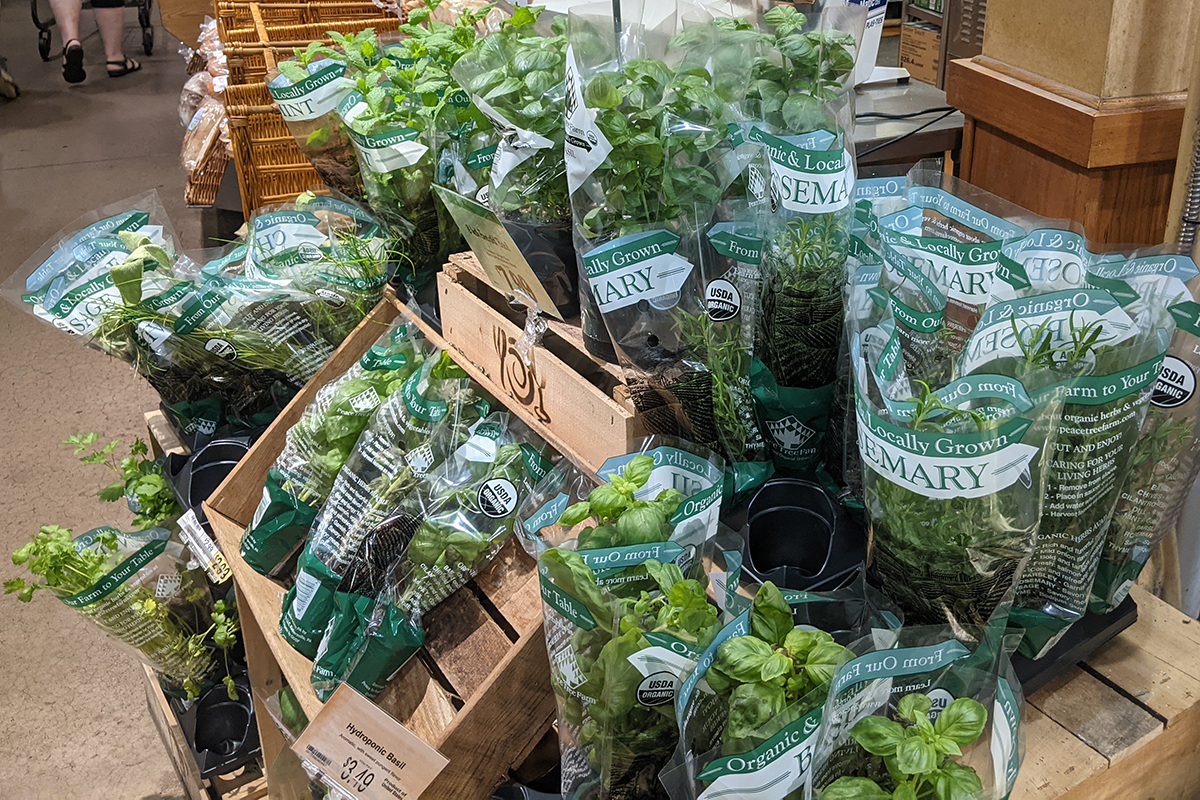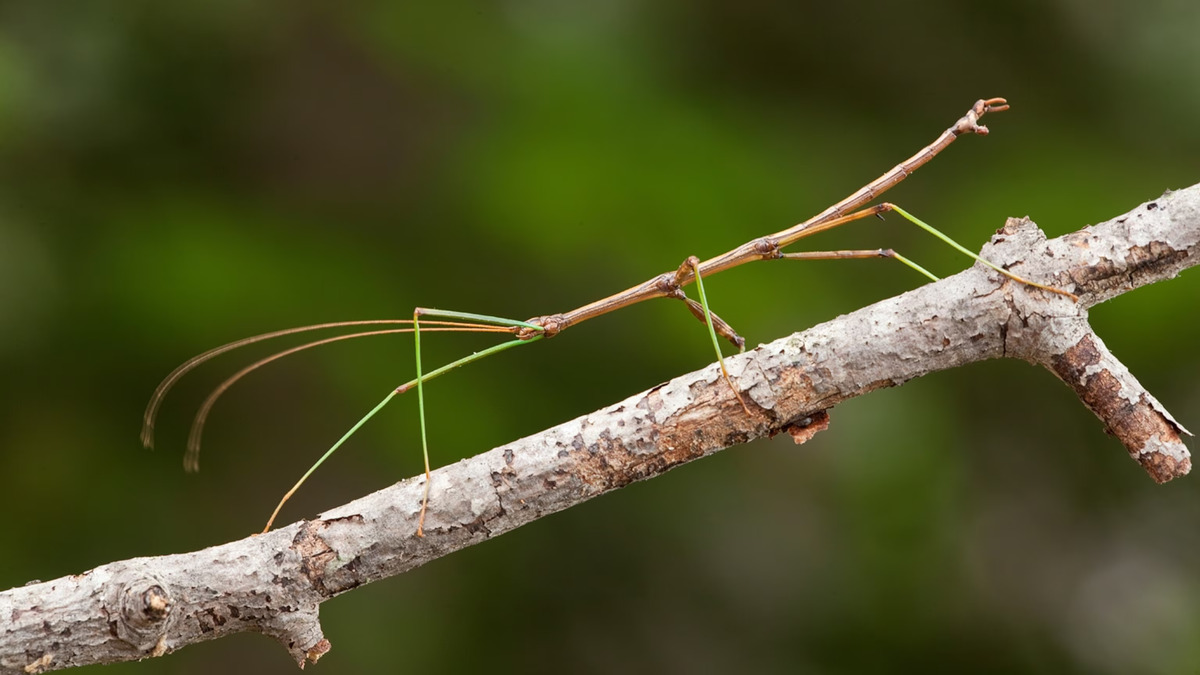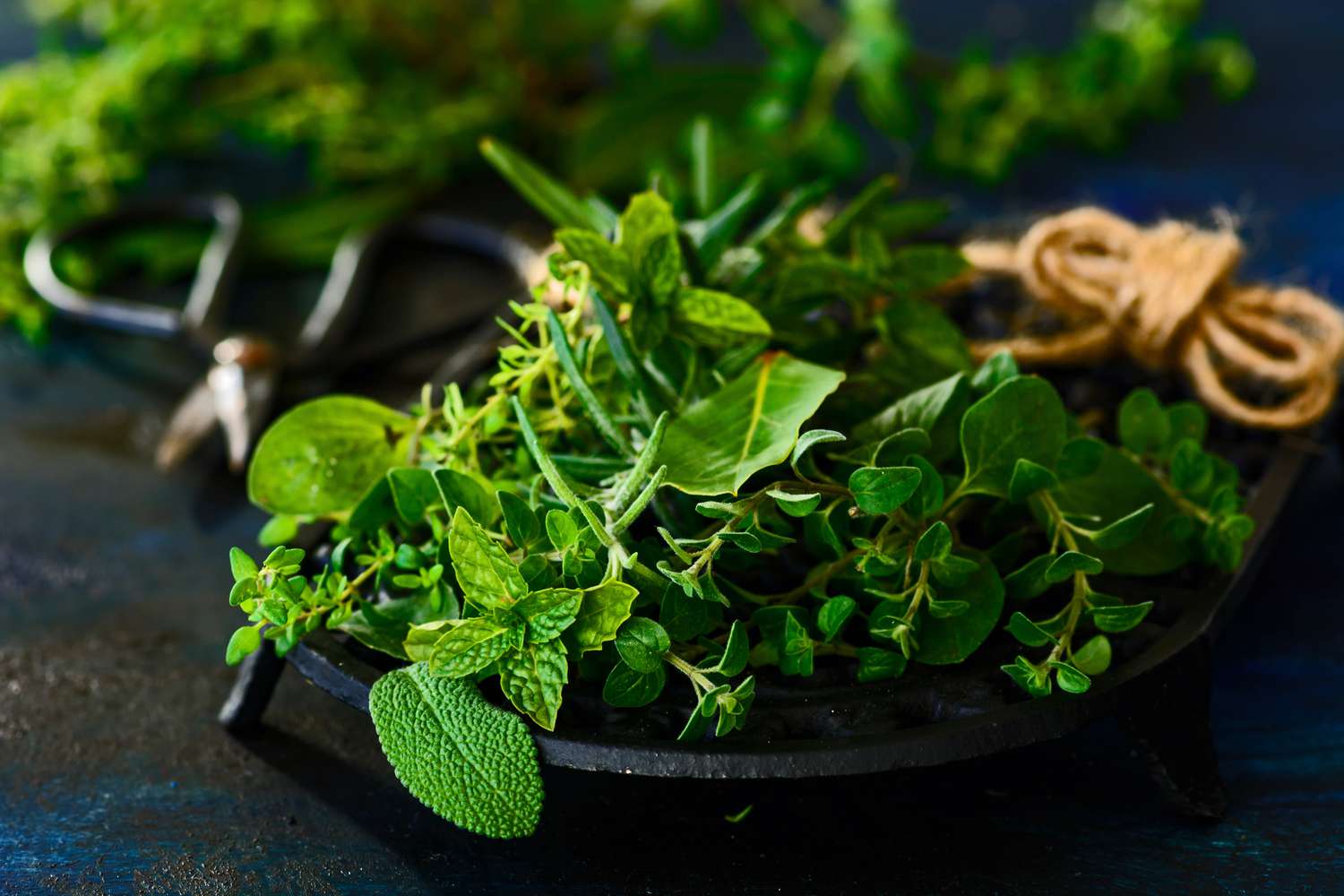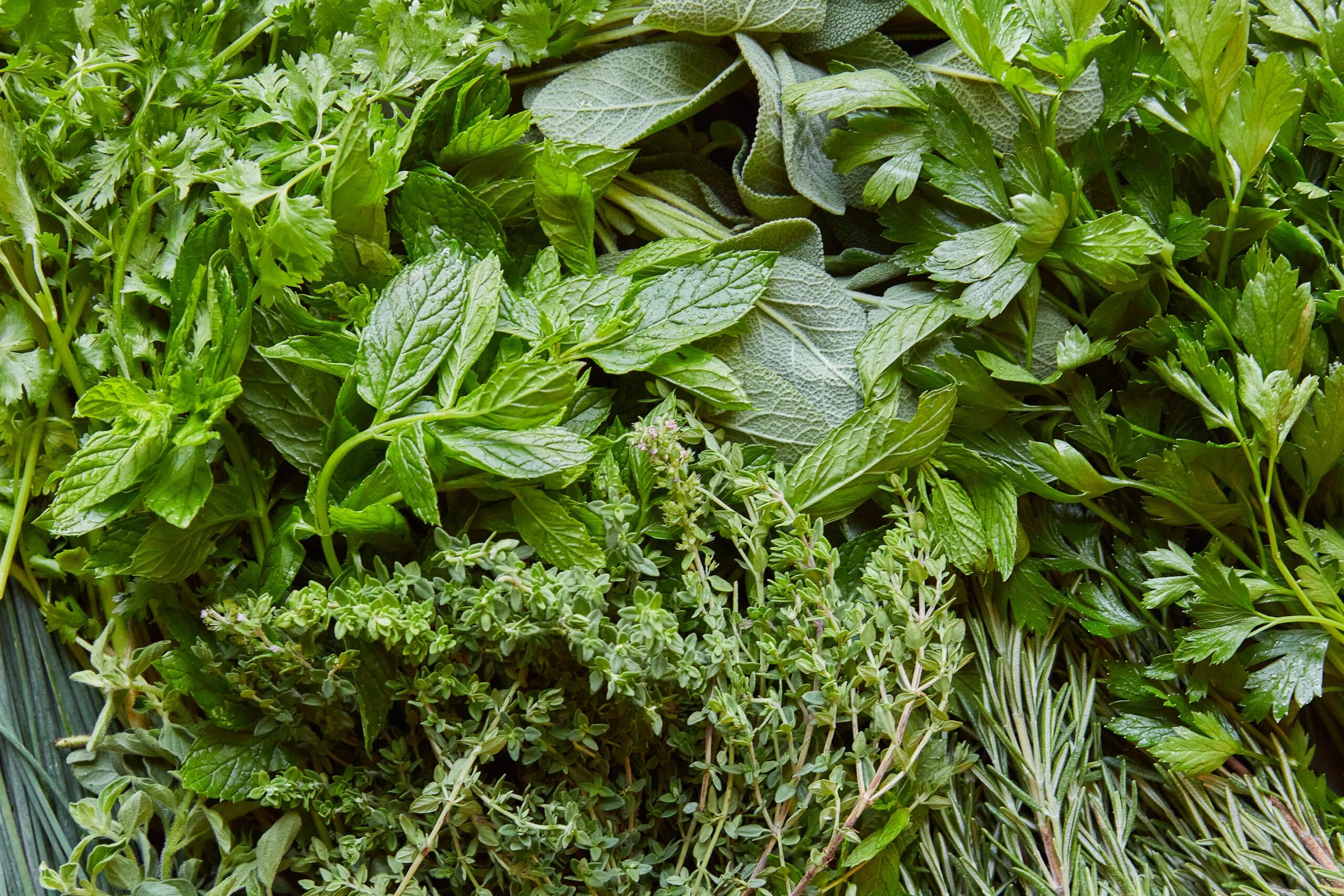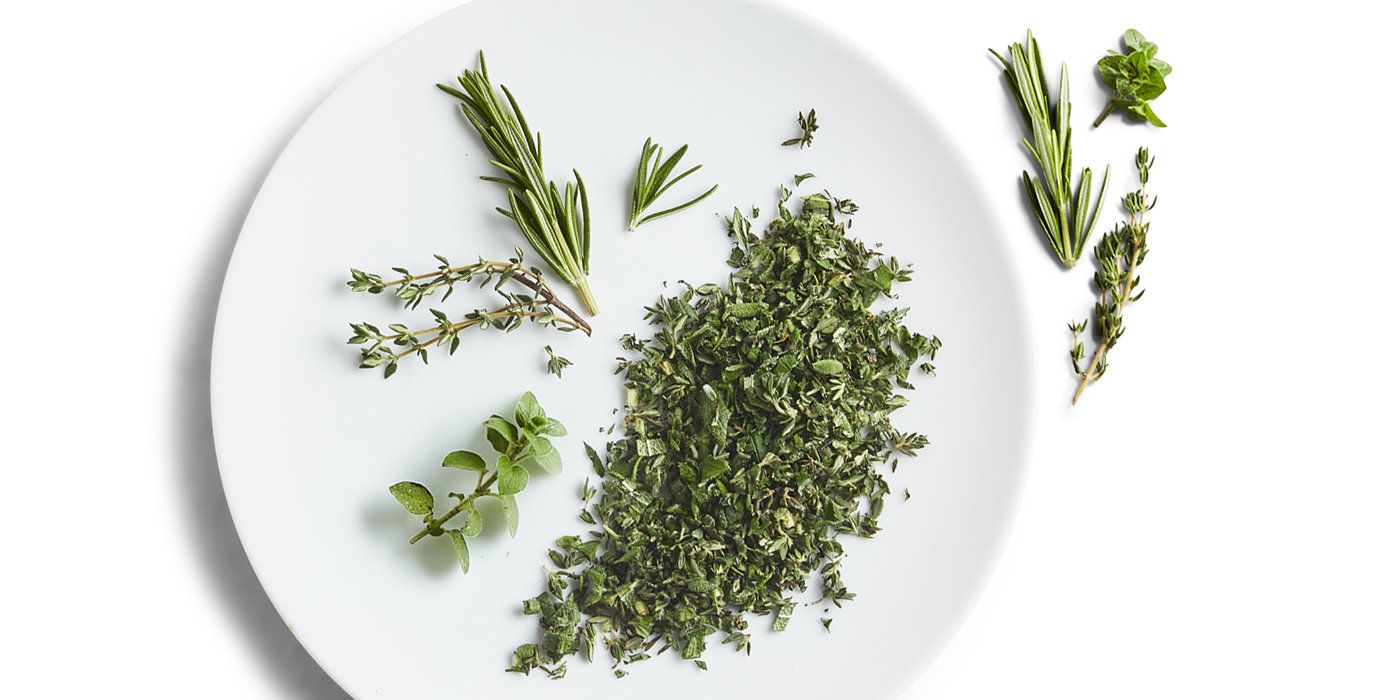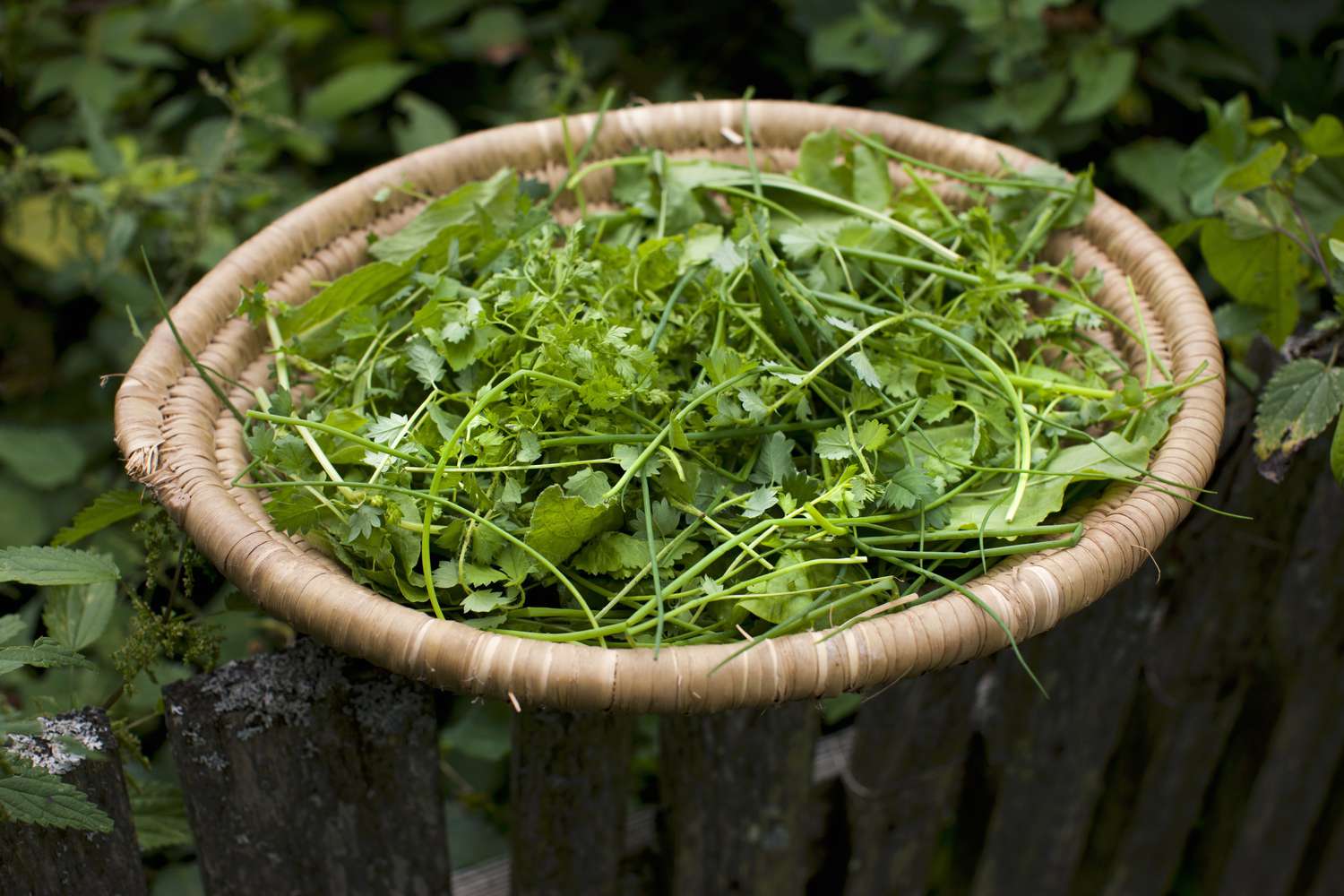Home>Gardening News and Trends>Gardening Trends>What Herbs Keep Mice Away
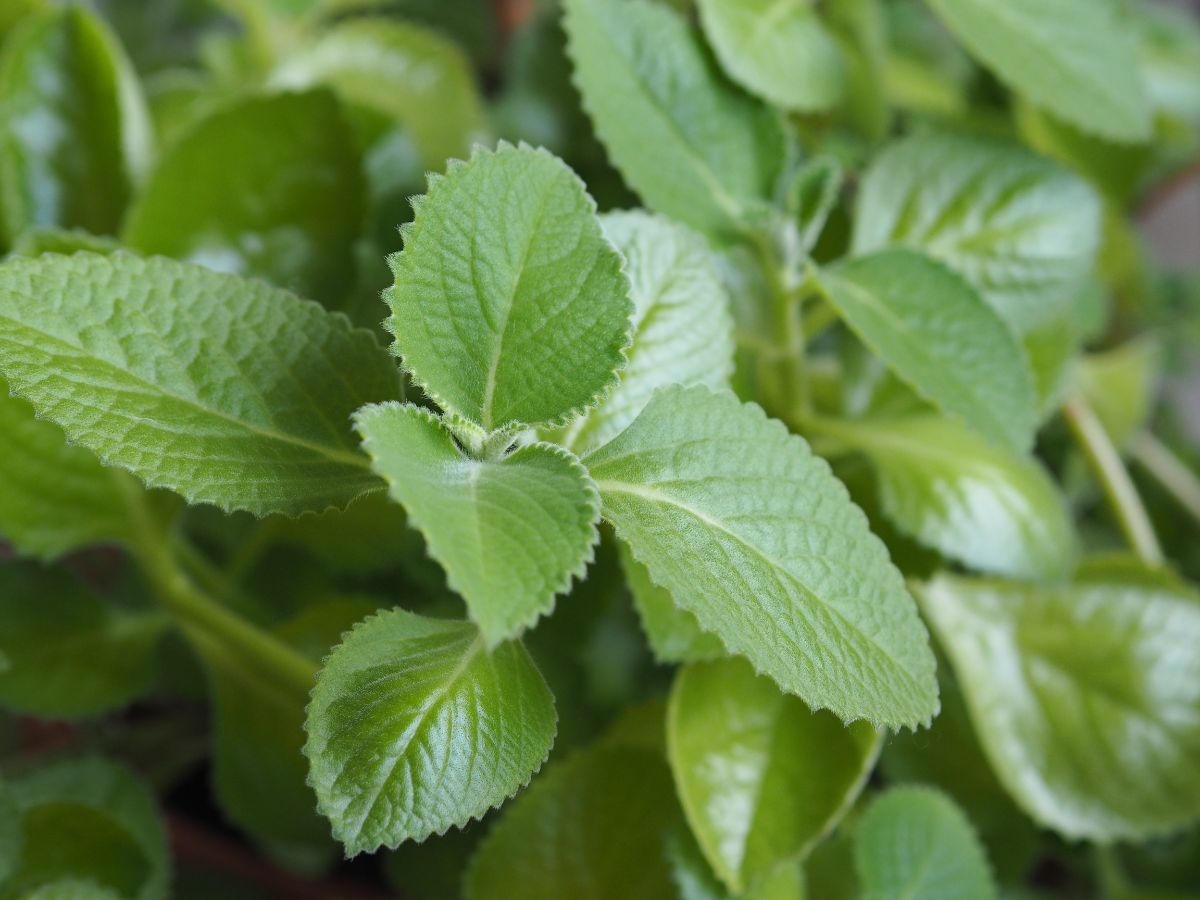

Gardening Trends
What Herbs Keep Mice Away
Modified: January 29, 2024
Discover the latest gardening trends and learn about natural herbs that can effectively keep mice away from your home.
(Many of the links in this article redirect to a specific reviewed product. Your purchase of these products through affiliate links helps to generate commission for Chicagolandgardening.com, at no extra cost. Learn more)
Table of Contents
Introduction
Welcome to the world of gardening trends, where nature and creativity combine to bring beauty and tranquility to our lives. As gardening enthusiasts, we are always looking for ways to spruce up our outdoor spaces and create a haven for plants, birds, and insects. One of the emerging trends in gardening is the use of herbs not only for their culinary and medicinal benefits but also as natural mouse repellents.
Mice can be a persistent problem in many homes and gardens, causing damage to furniture, chewing wires, and spreading diseases. While there are various commercial mouse repellents available, they often contain harsh chemicals and can be harmful to the environment and our health. This is where herbs come to the rescue, offering a natural and effective alternative to keep mice at bay.
Using herbs as mouse repellents has gained popularity due to their strong scents that mice find repulsive. By strategically placing these herbs in and around your home, you can create an inhospitable environment for mice, discouraging them from making your space their nesting ground.
In this article, we will explore some popular herbs that are known for their mouse-repellent properties. We will also discuss how to use these herbs effectively and offer some additional tips to maintain a mouse-free home. So, let’s dive in and discover the power of herbs in keeping mice away!
Why Use Herbs as Mouse Repellents?
When it comes to dealing with mice, many people are looking for safe, natural, and eco-friendly solutions. This is where herbs shine as effective mouse repellents. Here are some compelling reasons to consider using herbs to keep mice away:
- Natural and non-toxic: Unlike commercial mouse repellents that often contain chemicals, herbs offer a natural way to deter mice without harming the environment or endangering our health. They provide a safe alternative for households with children and pets.
- Pleasant fragrance: Herbs are known for their aromatic scents, which have a calming and pleasant effect on humans but repel mice. By introducing these fragrant herbs into your home and garden, you can create a pleasant environment for yourself while deterring unwanted rodent guests.
- Diverse options: There is a wide variety of herbs available, each with its unique scent and properties. This allows you to choose the herbs that work best for you, ensuring a personalized and effective mouse repellent solution.
- Multi-purpose use: While herbs are primarily used as mouse repellents, they also offer additional benefits. Many herbs can be used for culinary purposes, herbal teas, aromatherapy, and even as natural remedies for various ailments.
- Cost-effective: Herbs are generally affordable and easy to grow, either indoors or in your garden. By incorporating herbs into your mouse repellent strategy, you can save money on expensive commercial repellents while enjoying the benefits of a green and thriving garden.
Overall, using herbs as mouse repellents is a practical and eco-friendly approach to keep your home mouse-free. With their natural properties, pleasing fragrances, and multiple uses, herbs offer a compelling and sustainable alternative to chemical-based repellents. In the next section, we will dive into the specific herbs that are renowned for their mouse-repellent qualities.
Popular Herbs for Mice Repellent
When it comes to using herbs as mouse repellents, certain varieties have proven to be particularly effective in keeping these critters at bay. Let’s explore some of the popular herbs known for their mouse-deterring properties:
1. Peppermint
Peppermint is a potent herb with a strong scent that mice find repulsive. Its menthol fragrance acts as a powerful deterrent, making it one of the most popular herbs for repelling rodents. You can plant peppermint in your garden or use its essential oil to create sachets or spray solutions that can be placed in areas where mice tend to frequent.
2. Lavender
Lavender is well-known for its calming aroma, but mice are not fans of this delightful herb. Its sweet scent acts as a natural repellent, making it an excellent choice for keeping mice away. You can grow lavender plants in your garden or use dried lavender in sachets and place them in closets, drawers, and other potential entry points for mice.
3. Rosemary
Aside from its culinary uses, rosemary also has mouse-repellent properties. The strong scent of rosemary can deter mice and keep them away from your home. You can plant rosemary bushes around the perimeter of your house or use dried rosemary in sachets and strategically place them in areas where mice are likely to enter.
4. Spearmint
Similar to peppermint, spearmint is another herb that mice find unappealing. Its refreshing scent acts as a natural deterrent, helping to keep rodents at bay. Planting spearmint in your garden or using spearmint essential oil in sachets can help create an inhospitable environment for mice.
5. Thyme
Thyme not only adds flavor to your culinary creations but also helps keep mice away. Its strong and pungent aroma is disliked by mice, making it an effective natural repellent. Planting thyme near entry points or using dried thyme in sachets can help deter mice from entering your home.
6. Sage
Sage is a versatile herb that not only adds a savory taste to dishes but also acts as a deterrent for mice. The strong scent of sage repels mice, making it a valuable addition to your mouse-repellent arsenal. You can plant sage around your home or use dried sage in sachets to keep mice at bay.
These herbs are easy to find and can be grown in your garden or even in pots indoors. Their pleasant aromas and mouse-repellent properties make them excellent choices for maintaining a rodent-free environment. In the next section, we will explore how to effectively use these herbs to keep mice away.
Peppermint
Peppermint, with its refreshing and invigorating aroma, is not only a favorite herb for culinary and medicinal purposes but also a powerful repellent against mice. The strong scent of peppermint acts as a natural deterrent, making it an excellent choice for keeping these rodents away from your home and garden.
There are various ways to utilize the power of peppermint as a mouse repellent:
1. Growing Peppermint Plants:
Planting peppermint in your garden or around the perimeter of your home can create a barrier that deters mice. The scent emitted from the peppermint plants is highly disliked by rodents, making them less likely to venture near your property.
2. Peppermint Essential Oil:
Peppermint essential oil is a concentrated form of the herb’s scent, making it a potent repellent. You can create a spray solution by mixing a few drops of peppermint essential oil with water and spraying it in areas where mice are known to frequent. Be sure to spray near entry points, corners, and gaps where mice can access your home.
3. Peppermint Sachets:
Using dried peppermint leaves in sachets is another effective way to repel mice. Simply place dried peppermint leaves in small fabric bags or pouches and strategically position them in areas where mice are likely to enter, such as closets, attics, or storage spaces.
Remember to refresh or replace the peppermint plants, sachets, or spray solution regularly to ensure a continuous strong scent that keeps mice at bay.
Not only does peppermint serve as an excellent mouse repellent, but it also has additional benefits. The aroma of peppermint is known to have a calming effect on humans, making it a delightful addition to your garden or home. Additionally, peppermint has various culinary uses and can be used in beverages, desserts, and savory dishes.
However, it’s important to note that while peppermint is generally safe for humans and pets, some animals may be sensitive to its strong scent. If you have cats or dogs, it’s advisable to use precaution when using peppermint around them, as it may cause discomfort or irritation to their sensitive noses.
With its refreshing scent and proven effectiveness, peppermint is an excellent herb to have in your arsenal for keeping mice away. In the next section, we will explore another herb with mouse-repellent properties – lavender.
Lavender
Lavender, with its beautiful purple flowers and delightful fragrance, is not only a popular herb in gardens but also a potent repellent against mice. While humans find the scent of lavender calming and soothing, mice find it unpleasant and avoid areas where lavender is present.
Here are some ways to effectively use lavender as a mouse repellent:
1. Planting Lavender:
Grow lavender plants in your garden or around the perimeter of your home to create a natural barrier against mice. The strong aroma emitted by the lavender plants acts as a deterrent, preventing mice from venturing close to your property.
2. Lavender Sachets:
Using dried lavender flowers in small fabric sachets is an effective way to repel mice indoors. Place these sachets in areas where mice are likely to enter, such as closets, drawers, and storage spaces. The pleasant scent of lavender will deter mice from making these areas their nesting grounds.
3. Lavender Essential Oil:
Lavender essential oil can be used to create a spray solution that can be applied to areas prone to mice infestations. Dilute a few drops of lavender essential oil in water and spray it around entry points, corners, and gaps where mice can access your home. Not only will this help repel mice, but it will also leave your home smelling fragrant and inviting.
Lavender offers more than just mouse-repellent properties. Its calming scent is known to promote relaxation and reduce stress, making it a valuable addition to any garden or home. Additionally, lavender is widely used in aromatherapy for its soothing effects and can be incorporated into various beauty and self-care products.
It’s important to note that while lavender is generally safe for humans and pets, some animals may be sensitive to its scent. Always use caution when using lavender around pets, especially cats, as they can have a heightened sensitivity to certain scents.
With its beautiful blooms and aromatic properties, lavender is a versatile and effective herb for deterring mice. In the next section, we will explore another herb with mouse-repellent qualities – rosemary.
Rosemary
Rosemary, with its fragrant leaves and distinctive aroma, is not only a popular herb in the culinary world but also a powerful repellent against mice. The strong scent emitted by rosemary is disliked by mice, making it an effective natural deterrent to keep them away from your home and garden.
Here are some ways to effectively use rosemary as a mouse repellent:
1. Planting Rosemary:
One of the best ways to utilize rosemary as a mouse repellent is by planting it around the perimeter of your home or in your garden. The strong scent of the rosemary plants acts as a natural barrier, deterring mice from venturing near your property.
2. Rosemary Sprigs:
You can also use fresh rosemary sprigs to deter mice. Place these sprigs near potential entry points, such as windowsills, doorways, and cracks in the walls. The strong aroma of rosemary will help keep mice away and prevent them from entering your home.
3. Rosemary Essential Oil:
Rosemary essential oil can be utilized to create a spray solution. Mix a few drops of rosemary essential oil with water and spray it in areas where mice tend to be active, like basements, attics, or crawl spaces. The scent of rosemary will repel mice and discourage them from nesting in these areas.
Aside from its mouse-repellent properties, rosemary has various benefits. It is a versatile herb that adds flavor to culinary dishes and has health benefits such as improving digestion and boosting cognitive function. Adding rosemary to your garden not only helps keep mice away but also provides you with a fresh and fragrant herb to enhance your cooking.
While rosemary is generally safe for humans and pets, it’s important to note that some animals may be sensitive to certain scents. Monitor your pets when using rosemary as a mouse repellent and make sure they are not showing any signs of discomfort or irritation.
With its unique aroma and potent properties, rosemary is an excellent herb to incorporate into your mouse-repellent strategy. In the next section, we will explore another herb known for its ability to repel mice – spearmint.
Spearmint
Spearmint, with its refreshing fragrance and invigorating taste, is not only a popular herb for culinary purposes but also an effective repellent against mice. The strong scent of spearmint is disliked by mice, making it an excellent choice for naturally deterring these rodents from your home and garden.
Here are some ways to effectively use spearmint as a mouse repellent:
1. Planting Spearmint:
Growing spearmint plants in your garden or around the perimeter of your home is a great way to create a natural barrier against mice. The strong aroma emitted by the spearmint plants is unappealing to mice, making them less likely to approach or enter your property.
2. Spearmint Sachets:
Dried spearmint leaves can be used in fabric sachets to deter mice indoors. Place these sachets in areas where mice are likely to enter, such as closets, storage spaces, or near entry points. The scent of spearmint will repel mice and prevent them from making these spaces their nesting grounds.
3. Spearmint Essential Oil:
Spearmint essential oil can be used to create a spray solution that can be applied to areas prone to mice infestations. Dilute a few drops of spearmint essential oil in water and spray it around entry points, corners, and other areas where mice may attempt to enter your home. This will help repel mice and discourage them from making their way inside.
Spearmint offers not only mouse-repellent properties but also additional benefits. The aroma of spearmint is known for its uplifting and invigorating qualities, making it a refreshing addition to your garden or home. Spearmint also has various culinary uses and can be used in beverages, salads, desserts, and more.
While spearmint is generally safe for humans and pets, it’s important to note that some animals may be sensitive to certain scents. Keep an eye on your pets when using spearmint as a mouse repellent and ensure they are not showing any signs of discomfort or irritation.
With its refreshing scent and proven effectiveness, spearmint is an excellent herb to have in your mouse-repellent arsenal. In the next section, we will explore another herb with mouse-deterring properties – thyme.
Thyme
Thyme, with its delightful aroma and versatile uses, is not just a culinary herb but also an effective mouse repellent. The strong and pungent scent of thyme acts as a natural deterrent, making it an excellent choice for keeping mice away from your home and garden.
Here are some ways to effectively use thyme as a mouse repellent:
1. Planting Thyme:
Growing thyme plants in your garden or near entry points can help create a barrier that deters mice. The strong scent emitted by the thyme plants is disliked by rodents, making them less likely to approach your property.
2. Thyme Sachets:
Dried thyme leaves can be used in fabric sachets or small pouches. Place these sachets in areas where mice are likely to enter, such as basements, attics, or storage spaces. The scent of thyme will repel mice and discourage them from making these areas their nesting grounds.
3. Thyme Essential Oil:
Thyme essential oil can be used to create a spray solution. Mix a few drops of thyme essential oil with water and spray it in areas where mice tend to be active or where you suspect their presence, such as along baseboards, corners, or cracks. The scent of thyme will help repel mice and prevent them from infesting your home.
Thyme offers more than just its mouse-repellent properties. It is a versatile herb that adds flavor to a wide range of dishes, from soups and stews to roasted meats and vegetables. Thyme is also known for its medicinal uses, such as its antimicrobial and antiseptic properties.
While thyme is generally safe for humans and pets, it’s important to note that some animals may be sensitive to certain scents. Monitor your pets when using thyme as a mouse repellent and ensure they are not showing any signs of discomfort or irritation.
With its distinct aroma and proven effectiveness, thyme is an excellent herb to incorporate into your mouse-repellent strategy. In the next section, we will explore another herb known for its ability to repel mice – sage.
Sage
Sage, with its earthy scent and culinary versatility, is not only a popular herb in the kitchen but also a potent repellent against mice. The strong aroma of sage is disliked by mice, making it an excellent natural deterrent to keep them away from your home and garden.
Here are some ways to effectively use sage as a mouse repellent:
1. Planting Sage:
Growing sage plants in your garden or near entry points can help create a barrier that deters mice. The strong scent emitted by the sage plants is unappealing to rodents, making them less likely to approach your property.
2. Sage Sachets:
Using dried sage leaves in fabric sachets or small pouches is an effective way to repel mice indoors. Place these sachets in areas where mice are likely to enter, such as closets, cabinets, or storage spaces. The scent of sage will repel mice and discourage them from nesting in these areas.
3. Sage Essential Oil:
Sage essential oil can be utilized to create a spray solution. Dilute a few drops of sage essential oil in water and spray it in areas where mice are active or where you suspect their presence, such as along baseboards, corners, or cracks. The scent of sage will help repel mice and discourage them from infesting your home.
Aside from its mouse-repellent properties, sage has a rich history of being used for various purposes. It has been traditionally valued for its cleansing and purifying properties and has been used in spiritual practices and healing rituals.
While sage is generally safe for humans and pets, it’s important to note that some animals may be sensitive to certain scents. Monitor your pets when using sage as a mouse repellent and make sure they are not showing any signs of discomfort or irritation.
With its distinctive fragrance and proven effectiveness, sage is a valuable herb to include in your mouse-repellent strategy. In the next section, we will explore how to effectively use these herbs to keep mice away.
How to Use Herbs to Keep Mice Away
Now that we’ve explored some popular herbs for mouse repellent, let’s delve into the various ways you can effectively use these herbs to keep mice away from your home and garden:
1. Planting Herbs:
One of the simplest and most natural ways to repel mice is by planting these herbs in your garden or in pots around your home. Create a perimeter of these herbs, including peppermint, lavender, rosemary, spearmint, thyme, and sage, to deter mice from approaching your property.
2. Creating Sachets:
Dried leaves from these herbs can be used to create sachets or small fabric pouches. Fill these sachets with the herb leaves and place them in areas where mice are likely to enter, such as closets, drawers, or storage spaces. The strong scent emitted by the sachets will help keep mice at bay.
3. Using Essential Oils:
Essential oils derived from these herbs can be diluted with water and used to create spray solutions. Spray these solutions in areas where mice are active or where you want to prevent their entry, such as along baseboards, near entry points, or in other areas of concern.
4. Strategic Placement:
Strategically place herb plants, sachets, or essential oil solutions near potential entry points for mice, such as doors, windows, and cracks. Also, consider placing them in areas where mice are known to frequent, such as near food storage areas or under sinks.
5. Regular Refreshing:
Remember to regularly refresh or replace the herbs, sachets, or essential oil solutions. The scent of these herbs is what repels mice, so it’s important to ensure that the scent remains strong and effective over time.
By utilizing these methods, you can create an environment that is inhospitable to mice, reducing their chances of entering your home or causing damage to your garden. Remember, the key is to use a combination of these herbs and techniques for optimal effectiveness.
In addition to using herbs, there are other tips you can implement to help maintain a mouse-free home. Let’s explore some of these tips in the next section.
Additional Tips for a Mouse-Free Home
While using herbs as mouse repellents can be effective, incorporating additional strategies can help ensure a mouse-free environment in your home. Here are some additional tips to consider:
1. Seal Entry Points:
Inspect your home for any gaps, cracks, or holes that mice can use as entry points. Seal these openings using caulk or steel wool to prevent mice from getting inside.
2. Keep Food Stored Securely:
Mice are attracted to food sources, so it’s essential to store food in airtight containers and keep your kitchen clean and free of crumbs or spills. This will minimize potential food sources for mice and discourage them from entering your home.
3. Remove Clutter:
Mice are opportunistic and seek shelter in cluttered areas. Keep your home organized and remove any unnecessary clutter to eliminate potential hiding spots for mice.
4. Maintain Proper Sanitation:
Regularly clean your home, paying special attention to areas like the kitchen, pantry, and garbage cans. Remove any food debris or crumbs that may attract mice and ensure garbage is disposed of in tightly sealed containers.
5. Use Traps and Baits:
In addition to repellent herbs, consider using mousetraps or relocating traps to catch any mice present in your home. You can also use non-toxic mouse baits placed in secured bait stations to help eliminate any mouse infestations.
6. Outdoor Maintenance:
Keep your garden tidy and free of debris, as mice can use overgrown vegetation as nesting spots. Trim shrubs and trees away from the house and regularly clean up fallen fruits or vegetables.
7. Regular Inspection:
Regularly inspect your home, both indoors and outdoors, for any signs of mice, such as droppings, gnaw marks, or nests. Early detection can help prevent further infestations and allow for prompt action.
By implementing these additional tips in conjunction with using herbs as mouse repellents, you can significantly reduce the risk of mice infesting your home. Maintaining a clean, organized, and well-maintained environment is key to keeping mice at bay.
Be mindful that persistence and consistency are important when dealing with mice. It may take time for the herbs and other preventive measures to take full effect, so it’s crucial to remain vigilant and make adjustments as needed.
Now that you have a wealth of knowledge about using herbs and additional tips for a mouse-free home, you’re ready to create a space where mice will think twice before invading. Happy gardening, and may your home remain mouse-free!
Conclusion
Gardening trends are constantly evolving, and finding eco-friendly and natural solutions to common problems is becoming increasingly important. When it comes to mouse control, using herbs as repellents offers a safe and effective alternative to chemical-based products.
We explored several popular herbs known for their mouse-repellent properties, including peppermint, lavender, rosemary, spearmint, thyme, and sage. These herbs not only emit scents that repel mice but also offer additional benefits, such as pleasant aromas, culinary uses, and potential health benefits.
Using herbs to keep mice away is a simple and environmentally friendly approach. You can grow these herbs in your garden, create sachets, or make spray solutions with essential oils. Placing these herbs strategically around your home, especially near potential entry points, can effectively deter mice from entering your living space.
In addition to using herbs, we covered several additional tips for maintaining a mouse-free home, such as sealing entry points, proper food storage, removing clutter, and regular sanitation practices.
Remember, it’s important to stay consistent and monitor the effectiveness of your mouse repellent efforts. Mice are resourceful creatures, and it may take time to completely prevent their presence. Stay diligent, refresh your herbal repellents regularly, and take necessary actions such as using traps or baits if needed.
By incorporating these strategies, you can create an environment that is inhospitable to mice while maintaining the health and well-being of your family and pets. So, embrace the power of herbs and create a mouse-free haven that not only enhances your garden but also provides a serene and pest-free living space.
